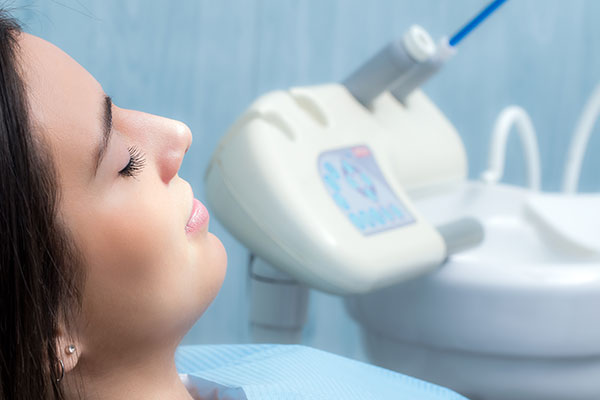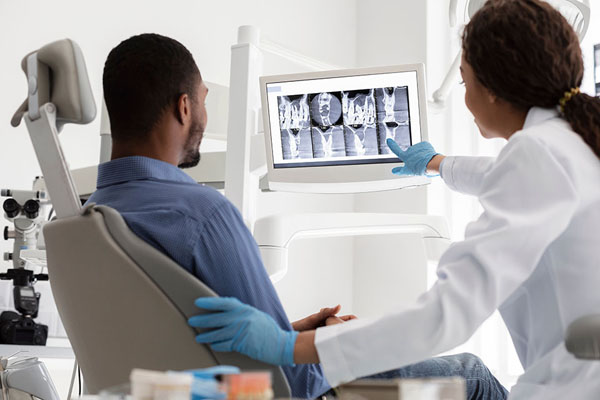General Anesthesia in Dentistry in Jupiter, FL
Please note we may not offer this service at our practice. Call (561) 744-0677 to learn more.
Will You Need General Anesthesia for Dental Treatment?
Dental anxiety and dental phobia prevent many people from getting essential dental care, often leading to severe oral health issues. For some complex dental treatments, general anesthesia may be necessary to ensure a pain-free and stress-free experience.
If you need to see a dentist in Jupiter, FL, schedule an appointment with Dr. Al Villalobos at our Jupiter dental office by calling (561) 744-0677.

What Is General Anesthesia?
General anesthesia in dentistry involves using intravenous (IV) medications or inhalation agents to induce a state of unconsciousness. While under general anesthesia, patients are completely unaware of the dental procedure, feel no pain, and have no memory of the treatment.
When Is General Anesthesia Used?
General anesthesia is typically reserved for specific dental situations, such as:
- Complex Oral Surgery: Procedures like wisdom teeth extraction, jaw surgery, and dental implant placements may require general anesthesia to ensure patient comfort and safety.
- Severe Dental Anxiety: Patients with extreme dental anxiety or phobia may benefit from general anesthesia to ensure a calm and stress-free experience.
- Pediatric Dentistry and Special Needs Patients: General anesthesia can help children and patients with special needs undergo dental treatments safely and comfortably.
- Multiple Procedures in One Session: For patients needing several dental procedures, general anesthesia allows multiple treatments to be completed in one visit, minimizing discomfort and recovery time.
Benefits of General Anesthesia
General anesthesia in dentistry offers several advantages:
- Pain-Free Experience: Patients are completely unaware of the procedure, making it ideal for invasive or lengthy treatments.
- Anxiety Relief: Patients with dental anxiety can receive necessary care without fear or stress.
- Efficiency: General anesthesia allows multiple procedures to be performed in a single session, reducing the need for multiple visits.
Administering General Anesthesia
Patient Evaluation
Before administering general anesthesia, a comprehensive evaluation of the patient’s medical history, allergies, medications, and past anesthesia experiences is conducted. The dentist will discuss the planned procedure and the reasons for choosing general anesthesia.
A signed consent form is typically required to confirm the patient’s understanding and agreement to proceed with anesthesia.
Preparation
Patients are usually advised to fast for several hours before the procedure to prevent complications during anesthesia. The dental team ensures that monitoring equipment, emergency medications, and airway management tools are ready.
The Anesthesia Team
A skilled anesthesia provider, such as a dental anesthesiologist or nurse anesthetist, administers and monitors the anesthesia throughout the procedure, ensuring the patient’s safety and comfort.
Anesthesia Induction
A sedative may be administered to relax the patient before the general anesthetic is given via an IV line or inhalation mask. The patient’s vital signs are continuously monitored during the procedure.
Maintenance and Monitoring
The anesthesia provider adjusts the anesthesia levels as needed to maintain unconsciousness and comfort. Vital signs are closely monitored to detect any complications.
Post-Anesthesia Care
After the procedure, patients are monitored as they recover from the effects of anesthesia. Common side effects may include grogginess, nausea, or confusion.
Treatments Where General Anesthesia Dentistry May Be Used
- Oral Surgery: Impacted wisdom teeth extraction, jaw surgery (orthognathic surgery), and cleft palate repair.
- Dental Implant Placement: Multiple implants or complex cases.
- Pediatric Dentistry: Extractions, fillings, or crowns for children with special needs or extreme anxiety.
- Multiple Procedures: Performing several procedures in one session, such as extractions and root canals.
- Complex Restorative Dentistry: Full-mouth restorations or extensive cosmetic work.
- Maxillofacial Surgery: Correction of facial deformities, fractures, or reconstructive surgeries.
General Anesthesia Risks
While it can be safe and effective, there are risks associated with general anesthesia when used in dental treatments. Potential risks may include:
- Allergic Reactions
- Respiratory Problems
- Cardiovascular Complications
- Aspiration
- Nausea and Vomiting
- Cognitive Effects
- Infection
- Blood Clots
General Anesthesia Costs
The cost of general anesthesia can range from $400 to $1,000 per hour, influenced by factors such as:
- Location: The cost of general anesthesia can vary significantly from one region or country to another. In areas with a higher cost of living, you can generally expect anesthesia costs to be higher.
- Procedure Complexity: More complex and invasive procedures, such as oral surgeries like wisdom tooth extraction or dental implant placement, may require longer anesthesia administration and monitoring, leading to higher costs.
- Anesthesiologist Fees: Separate fees may apply if an anesthesiologist is required.
- Duration of Anesthesia: Longer procedures result in higher costs.
- Dental Practice or Clinic Pricing: Different practices may have varying pricing structures. Some may bundle it into the overall procedure cost, while others may charge separately.
- Insurance Coverage: Dental insurance may partially or fully cover the cost of general anesthesia for certain procedures, especially if deemed medically necessary. Check with your insurance provider for coverage details.
- Additional Costs: Pre-anesthetic evaluations, post-operative care, and medications may add to the overall cost.

Frequently Asked Questions
Recovery times vary, but most patients wake up within minutes. You may feel groggy for a few hours, so it’s essential to have someone accompany you and arrange for transportation home.
Yes, alternatives include nitrous oxide (laughing gas), oral conscious sedation, and IV sedation. Discuss your sedation options with your dentist.
Contact Our Jupiter Dental Office Today!
For more information about dental procedures and anesthesia, contact our dentist or oral surgeon. We can discuss our sedation dentistry options and provide personalized guidance tailored to your needs.
To schedule an appointment with our Jupiter dentist, contact our dental office today by calling (561) 744-0677. We proudly serve Jupiter and surrounding areas, including Hobe Sound, Limestone Creek, and Tequesta, FL!
